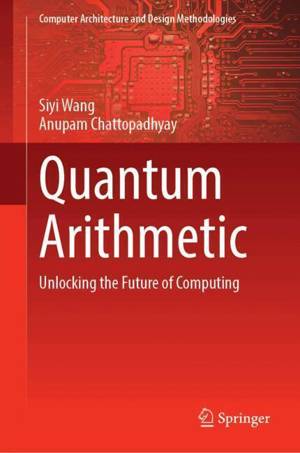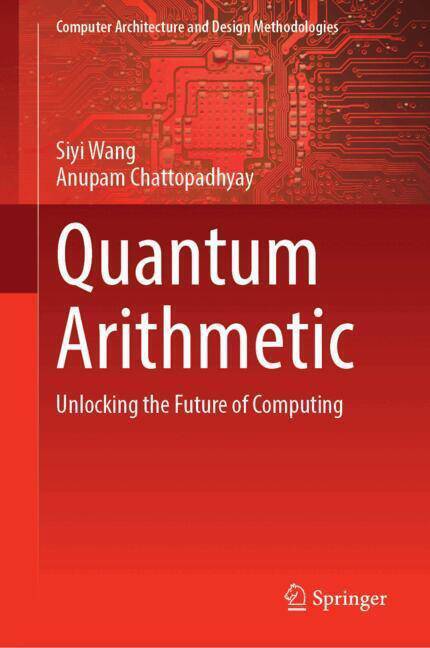
- Retrait en 2 heures
- Assortiment impressionnant
- Paiement sécurisé
- Toujours un magasin près de chez vous
- Retrait gratuit dans votre magasin Club
- 7.000.0000 titres dans notre catalogue
- Payer en toute sécurité
- Toujours un magasin près de chez vous
Description
This book bridges the gap between classical arithmetic circuit design and its quantum computing counterparts. It explores innovative approaches to designing and optimizing arithmetic circuits for quantum computing, offering practical solutions that advance the field. The subject of this book encompasses quantum adders, multipliers, and dividers, highlighting their efficiency improvements and potential real-world applications in areas such as quantum cryptography, machine learning, and optimization tasks.
This book is rooted in a rigorous exploration of both classical and quantum computation, providing readers with a clear progression from classical arithmetic to its quantum equivalents. Methods like quantum circuit depth optimization, resource reduction techniques, and modular arithmetic designs are thoroughly discussed. These topics are of particular interest to researchers, students, and professionals who seek to understand how quantum computing can overcome the limitations of classical hardware.
Special features include detailed diagrams of circuit designs, tables comparing classical and quantum performance metrics, and step-by-step explanations that make complex ideas accessible. Each chapter concludes with key takeaways to reinforce understanding and guide further study. This book also maps these designs to real-world Noisy Intermediate-Scale Quantum (NISQ) hardware, validating their functionality and efficiency. Readers benefit from the book s clear structure, practical design insights, and coverage of cutting-edge advancements, making it an essential resource for anyone working on the forefront of quantum technology.
Spécifications
Parties prenantes
- Auteur(s) :
- Editeur:
Contenu
- Langue:
- Anglais
- Collection :
Caractéristiques
- EAN:
- 9789819560387
- Date de parution :
- 13-05-26
- Format:
- Livre relié
- Dimensions :
- 155 mm x 235 mm

Seulement chez Librairie Club
Les avis
Nous publions uniquement les avis qui respectent les conditions requises. Consultez nos conditions pour les avis.






